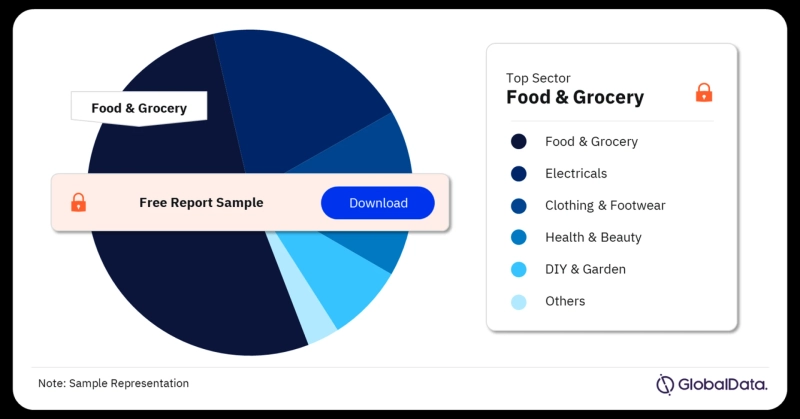Introduction
Malaysia’s retail market is a vibrant and dynamic sector, playing a crucial role in the country’s economy. With a diverse range of retail formats and a rapidly growing e-commerce scene, Malaysia offers a unique blend of traditional and modern shopping experiences. Let’s dive into the intricacies of the Malaysian retail market and explore what makes it tick.
Historical Context
The retail landscape in Malaysia has evolved significantly over the decades. From traditional street markets and mom-and-pop stores to sprawling shopping malls and online marketplaces, the journey of retail in Malaysia is marked by several key milestones. The introduction of hypermarkets in the 1990s and the subsequent growth of shopping malls in urban areas marked a significant shift in consumer shopping habits.
Current Market Landscape
Major Retail Players in Malaysia
Malaysia’s retail sector is dominated by several key players, including AEON, Tesco, Giant, and Mydin. These retailers operate various formats, catering to different consumer needs and preferences.
Types of Retail Formats
- Hypermarkets and Supermarkets: These large-format stores offer a wide range of products under one roof, providing convenience and competitive pricing.
- Convenience Stores: Smaller stores like 7-Eleven and FamilyMart cater to the needs of busy urban dwellers, offering quick and easy access to everyday essentials.
- E-commerce: Platforms like Lazada, Shopee, and Zalora have revolutionized shopping in Malaysia, offering a vast array of products and services online.
Consumer Behavior in Malaysia
Malaysian consumers are known for their diverse shopping habits, influenced by a mix of cultural, economic, and demographic factors. Family-oriented shopping trips to malls are common, while younger consumers are increasingly turning to online shopping for convenience and variety. Promotions, discounts, and festive sales also play a significant role in shaping consumer behavior.
E-commerce Growth
The e-commerce sector in Malaysia has seen exponential growth in recent years. Online shopping is becoming a norm, driven by the proliferation of smartphones and internet access. Popular platforms like Lazada and Shopee dominate the market, offering everything from electronics to fashion. The convenience of online shopping, combined with attractive deals and fast delivery options, has made e-commerce a preferred choice for many Malaysians.
Technology and Innovation
Technology is at the forefront of transforming the retail industry in Malaysia. Retailers are increasingly adopting innovative technologies such as AI, big data analytics, and cashless payment systems to enhance the shopping experience. Examples include the use of AI-powered chatbots for customer service and big data analytics to understand consumer preferences and optimize inventory management.
Impact of COVID-19
The COVID-19 pandemic brought about significant changes in consumer behavior and the retail landscape in Malaysia. With lockdowns and social distancing measures in place, many consumers shifted to online shopping. Retailers adapted by enhancing their digital presence and offering contactless delivery options. While some sectors, such as groceries, saw a surge in demand, others like fashion and luxury goods faced challenges.
Government Policies and Regulations
The Malaysian government has implemented various policies and initiatives to support the retail sector. These include incentives for small and medium-sized enterprises (SMEs), tax relief measures, and efforts to boost digital transformation. Regulations related to consumer protection, data privacy, and fair trade practices also play a crucial role in shaping the retail market.
Challenges Facing the Retail Industry
The retail sector in Malaysia faces several challenges, including intense competition from global retailers, economic uncertainties, and changing consumer preferences. The rise of e-commerce has also put pressure on traditional brick-and-mortar stores to innovate and stay relevant. Additionally, retailers must navigate regulatory hurdles and ensure compliance with various laws and standards.
Sustainability in Retail
Sustainability is becoming an important consideration for retailers in Malaysia. Consumers are increasingly aware of environmental issues and are seeking eco-friendly products and practices. Retailers are responding by adopting sustainable practices, such as reducing plastic usage, promoting recycling, and sourcing products responsibly. Some retailers, like AEON, have launched green initiatives to minimize their environmental footprint.
Future Trends
The future of the Malaysian retail market looks promising, with several trends expected to shape the industry. These include the continued growth of e-commerce, the integration of advanced technologies, and a greater focus on sustainability. Additionally, personalized shopping experiences and omnichannel retailing, which combines online and offline shopping, are likely to gain traction.
Case Studies
Success Stories
- MR. D.I.Y.: This home improvement retailer has grown rapidly by offering a wide range of affordable products and focusing on customer convenience.
- Lazada: As one of the leading e-commerce platforms in Malaysia, Lazada has successfully captured the market with its user-friendly interface, extensive product range, and efficient delivery network.
Lessons from Failures
- Parkson: Once a leading department store chain, Parkson has struggled to adapt to changing consumer preferences and the rise of online shopping, highlighting the importance of digital transformation.
Marketing Strategies for Retailers
Effective marketing is crucial for retail success. Retailers in Malaysia are leveraging social media, influencer partnerships, and digital marketing to reach their target audiences. Seasonal sales, loyalty programs, and personalized promotions are also popular strategies to attract and retain customers.
Customer Experience
In the competitive retail landscape, providing an exceptional customer experience is key. Retailers are focusing on personalized service, convenient shopping options, and seamless omnichannel experiences. Investing in staff training and utilizing customer feedback to improve services are also essential strategies.
Conclusion
The Malaysian retail market is a dynamic and evolving sector with significant growth potential. Despite the challenges, the future looks bright, with technology, e-commerce, and sustainability driving the industry forward. By understanding consumer behavior, leveraging innovative technologies, and adopting effective marketing strategies, retailers in Malaysia can continue to thrive in this competitive landscape.
Buy the Full Report for Sector-Wise Insights Into the Malaysia Retail Market, Download A Free Report Sample


